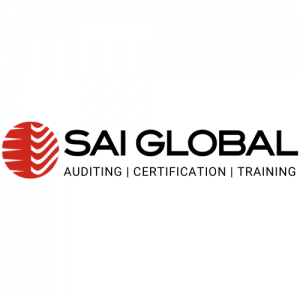With carbon emissions a key theme of climate change policy debate, businesses often place great emphasis on achieving carbon neutrality.
By SAI Global Technical Manager Australia & South East Asia Saeid Nikdel.
To be truly sustainable, however, a global risk management provider recommends that businesses serious about being environmentally responsible should focus on a range of measures that also impact water and land.
SAI Global helps organisations in 130 countries – including Australia – to develop environmental management systems in accordance with the ISO 14001 global standard.
Beyond carbon emissions, there are key areas that businesses can focus on to maximise their sustainability efforts. These include reducing releases to water and land, better use of raw materials and natural resources, more efficient and lower energy usage, lower generation of waste and/or by-products, and better utilisation of space.
Not only is it important for businesses to be sustainable so that they can protect the environment, it is also becoming important to their very existence. New research has revealed that consumers are driving corporate sustainability efforts, with online searches for sustainable goods globally up 71% over the past five years (Global report by Economist Intelligence Unit, commissioned by the WWF). Several global surveys have also revealed that consumers are far more likely to support a business that has made a corporate social responsibility pledge. Global brands have also made pledges to improve their sustainability efforts and reduce their carbon footprint in the knowledge that if they fail to do so, they will lose substantial market share.
The ISO 14001 standard provides a whole range of considerations that organisations could make around the lifecycle of their activities, products and services – from material acquisition to final disposal – that may have any environmental impacts.
The organisation’s facilities, processes, products, and services could all be evaluated as part of its performance related to its environmental management.
How raw materials are acquired and extracted; what processes are used around operations, manufacturing and storage; and how facilities, assets and infrastructure are operated and maintained – all have an impact on a company’s environmental footprint and should be part of the conversation when developing an environmental strategy.
It is not only within the confines of their own enterprises, however, that businesses can make a positive environmental impact.
Companies could also evaluate the environmental performance and practices of all of their external providers and make a determination on who they choose to work with based on their credentials in that area.
Other key areas that can contribute greatly to an organisation’s global footprint include the transportation, packaging and delivery of products; how products are used, stored and treated at the end of their lives; and how waste is managed, including its reuse, refurbishment, recycling and disposal.
Organisational-wide buy-in is key – and this is where an environmental management system comes in.
Many organisations have an environmental policy from which they develop procedures to demonstrate their commitment to the policy. However, a policy is simply a statement that can be the framework for the company’s environmental commitments. The management system is a set of business processes and the documentation – including policies, objectives, procedures and governances – which control the conditions and factors impacting the environment.
For an environmental management system to succeed, it needs to be integrated into the business’s processes, strategic direction and decision making, and aligned with other business priorities. All levels and functions of the business, led by top management, must fully commit to it.
To properly address an organisation’s environmental impact and minimise it, we need to look across its entire operations, as well as those of its suppliers and partners. How it deals with its waste, its energy consumption and output, how it generates its energy needs, the efficient use of space, and its environmental impact on the land and waterways, are all contributory factors. Without taking a multi-faceted approach, organisations will never be able to reach their full potential when it comes to being a good global citizen.
 About Saied Nikdel
About Saied Nikdel
Saeid Nikdel is a technical manager at SAI Global. He joined the organisation in 2013 and is responsible for auditing quality, occupational health and safety, and environmental management systems across SME and large companies. He has more than 20 years’ experience in risks and compliance and auditing, and an extensive background in developing, implementing and maintaining management systems. Saeid has supported numerous organisations across Australia and South East Asia over his eight years with SAI Global.
About SAI Global
SAI Global is a provider of integrated risk management solutions – a combination of leading certification capabilities, training services and advisory offerings across the entire risk lifecycle. It helps organisations proactively manage risk to build trust with customers and achieve business confidence, growth and sustainability. The company has global reach, with locations across Europe, the Middle East, Africa, the Americas, Asia and the Pacific. For more information, visit saiassurance.com.


![iStock-1180702558[2]](https://retailworldmagazine.com.au/wp-content/uploads/2021/09/iStock-11807025582-696x461.jpg)